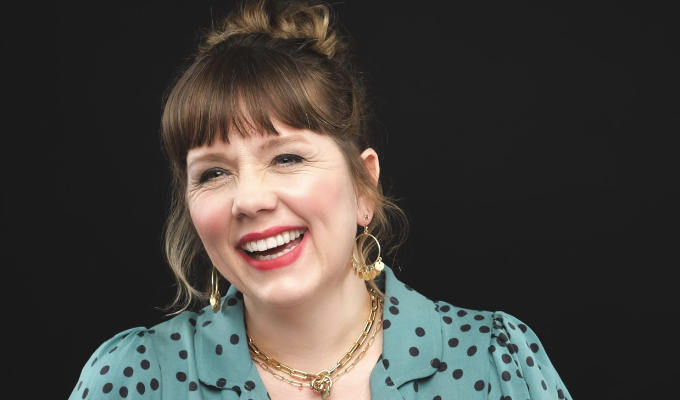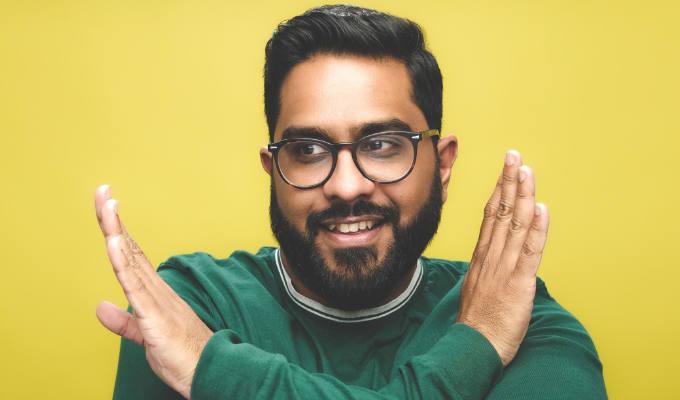Festival: The Movie
The only difference was the 9am show that Lyndsey Marshall, left, was so frantically flogging didn’t really exist. Unlike the vast majority of wannabes at the Fringe, she had a real acting job – playing a naïve hopeful in the forthcoming film Festival, with the genuine punters she hustled as unwitting extras.
The movie is the brainchild of Annie Griffin, the American-born creator of Channel 4’s acclaimed comedy series The Book Club who now lives in Edinburgh. And she says the unique atmosphere of the Fringe was an obvious setting for a film.
‘During the Edinburgh Festival, the city is swollen with performers, all competing for audiences, all desperate for their show to be recognised as something special,’ she said. ‘I used to be an actor. When I performed at Edinburgh, it always struck me that there was more drama in surviving the festival than there ever was in the actual shows.’
‘In all my years of living here I’ve noticed this obsession and fascination with American culture, but to me the Edinburgh Festival is much more glamorous than, say, being on Broadway.
‘Unless you’ve been there you don’t know that it’s this incredible, dramatic, ancient city. And one million people head there during the month of August. I think it is kind of a British thing to ignore your own stories and think that American stories are more interesting.’
So the idea was born, and in April last year funding fell into place, giving the producers just four months if they wanted to film on the streets of Edinburgh during the actual festival.
‘In a way it was great knowing that we had to do it that fast,’ said Griffin, right, ‘It meant we couldn’t spend months and months talking about rewrites.’
‘Had it had been a comedy set during the carnival in Rio de Janeiro I would have been a lot less confident in saying we could make it happen,’ said producer Chris Young. ‘But I felt very bullish about this.’
‘We began a two week period of rehearsal while the festival was on,’ adds Griffin. ‘And in that time we really began to feel like we were actually doing shows there.’
The actors who play stand-ups - Chris O’Dowd, Billy Carter, Green Wing’s Stephen Mangan and Lucy Punch – especially had their work cut out.
‘Chris O’Dowd and Billy Carter developed their own material. They didn’t want to just deliver lines, it had to feel like it was their own stuff, so they all went to see a lot of comedy,’ Griffin said. ‘I think Steve Mangan went to see 40 comedy performances.
‘It was strange, because at night you were going out and watching other shows and by day you’d work on yours.’
O’Dowd said he felt he just had to give stand-up a go before playing a comic on screen. ‘I did three stand up gigs in character to see how it would be. And it was absolutely terrifying. It went fine, at times they laughed, at other times they didn’t. But it was incredible.
‘When you’re an actor doing a drama there isn’t such an immediate response. But in comedy they would come off stage and say ‘why won’t the bastards laugh?’”
‘There were moments when I felt I had them in my control. It’s different from doing that in a play. You’re looking them in the eye, and they’re looking at you, and you realise that the next five words you say are going to change their emotions. And you know what they’re going to laugh at by the things that they’ve laughed at before. To a comedian that would be obvious, but I found it incredible.’
Lucy Punch was equally nervous even simply pretending to be a stand-up. ‘It was absolutely petrifying,’ she admits, ‘by far the scariest scene for me. Annie really encouraged the three of us who were playing comedians to come up with our own routines, and the type of comedy they do. I’m not a comedian, I can’t write gags, so that was hard.
‘For my stand-up scene they rounded up some people off the street as extras to play the audience, and fortunately Annie told them all that my character was supposed to be very funny. So the whoops and cheers and laughter were very encouraging.
‘I felt a bit like a comedy genius because everyone was cheering me. The first couple of times were petrifying, but after the tenth time I was loving it, thinking “God I’m hilarious”, even though I wasn’t.”
For Stephen Mangan, who plays obnoxious comedy star Sean Sullivan, left, the chance to return to return to the festival a decade after he had performed there was an eye-opener.
‘You forget what it’s like,’ he says. ‘You forget how chaotic and exhausting the whole thing can be. I remember I went out for the end-of-festival reverie and you get in at dawn and forget how morally and spiritually broken you end up.
‘At the end of that you’re not only physically shattered, you kind of feel unhappy with yourself. And that’s really useful because that’s the story of the film.’
Some might think they can identify a real comic behind the egotistical Sullivan character, but Griffin denies it.
‘It’s amazing how many people came in convinced it was based on a particular comedian,’ she said. ‘And it’s a different one every time.
‘I’ve worked with a lot of comedians, and I see this pattern of unquestioned childlike behaviour. In part the stimulus for writing the character of Sean Sullivan was expressed in this idea that somebody might be a total asshole, but it’s excused because they’re a genius. It’s as if it doesn’t matter how you treat people because you make them laugh.’
That the comedians are universally portrayed as deeply flawed characters might come as little surprise, but the cast say they tried to avoid making them straightforward monsters.
‘I think any decent comic or character has a three dimensional aspect,’ said Mangan. ‘You have to understand why they’re so unpleasant. And I think audiences enjoy the dark stuff because it’s the stuff that we’re not supposed to talk about. We all have dark thoughts and certain weirdnesses about us. I think it’s a tremendous relief sometimes to see them, albeit in an exaggerated form, acted out on screen.”
‘I think the subject matter is dark,’ Griffin adds. ‘It’s a cliché that comedians tend to be very serious, but in general I don’t think satisfied, happy people feel the need to perform. There is a neediness in performers. The relentlessness of that desire to get up in front of people has its dark side.”
This neediness is writ large in the character of Brother Mike, right, a monk who is performing a harrowing one-man show about abuses in the Catholic Church.
‘He’s somebody who has a huge drama going on in his life,’ said Griffin. ‘But everybody around him ignores it because they’re so caught up in their own stories. Brother Mike is struggling with this stuff and trying to make a show out of it. I think it’s true, with a lot of shows you see in Edinburgh, you feel the performer should be speaking to a therapist, not an audience.’
For all the ensemble cast, the biggest star of the film, is the festival itself.
‘The festival feels so unsponsored,’ Griffin said. ‘Anywhere else, they have a big civic event in the sense that the city is presenting it. But in Edinburgh you get the feeling that it works in spite of the city. It’s like this thing with a life of its own that some of the local people put up with. It feels like it comes from performers, not festival directors or councillors. It always has this anarchic shape to it, which is great.’
Her film crew recorded the manic streets of Edinburgh last summer as if they were filming a documentary. ‘The great thing was we didn’t stick out particularly among the other performances,’ producer Chris Young said. ‘We didn’t want to be obtrusive, and have people see the camera the whole time. So we were a sort of performance, one of 500 groups of hopefuls coming to Edinburgh to find our fame and fortune.’
Griffin added: ‘Chris knew how to make it work; he knew we had to be light, small and low budget. People didn’t look at us and think they could make some money out of some big film being made. And although it isn’t a documentary we were using documentary techniques. We were in the rhythm of the festival, in the way we got hold of audiences.
‘We didn’t have a budget to pay for extras, but there were all these people waiting around, so we were doing the performer thing ourselves of trying to hustle audiences to come and see us.’
But when the festival packed up and left town, Griffin and her team still had another month’s worth of filming to finish.
‘There was quite a noticeable dip then,’ Young admitted. ‘It was very deliberate that we did as much exterior stuff as possible over that festival period when the crowds were there. But there was a slight psychological dip when we got into the middle of September and we still had another four weeks of shooting to go.
‘Edinburgh was suddenly back to its old wet and windy Presbyterian self. So I think it’s true, we definitely fed off the energy of the festival.’
Festival is released on July 15, cert 18 First published: July 2005
Published: 22 Mar 2009






